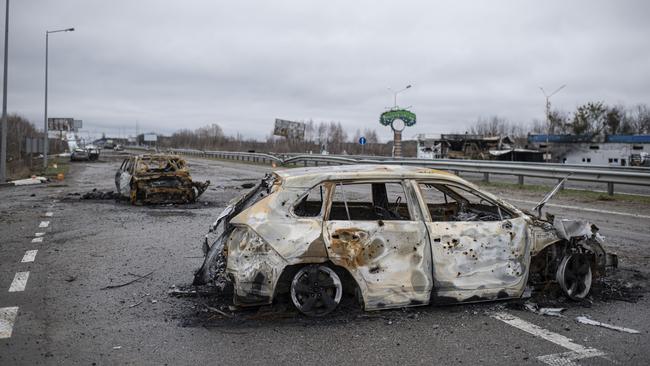War’s legal homicide isn’t easy. If it is, then you’re entering the territory of the sociopath


What will be coming home with Putin’s soldiers for years to come? What burdens will they carry? War creates psychological trauma for those who fight and kill; a deep soul-wounding, a moral injury of the psyche. Psychiatrist Jonathan Shay, an expert on PTSD in war veterans, says: “When you put a gun in some kid’s hands and send him off to war, you incur an infinite debt to him for what he has done to his soul.” John Fisher served as an assistant gunner in Vietnam and described the first time he killed an enemy soldier. “I realised that I had taken his soul away from him. In the process, my soul was gone.” War’s legal homicide isn’t easy. If it is, then you’re entering the territory of the sociopath.
Armed forces are trying to sanitise modern warfare, make it less personalised. Distance is important. If the victim is far away, out of sight, the soldier’s psychological trauma is lessened. It’s easier to demonise someone if they’re nameless and faceless. In executions throughout history the victim has often worn a hood to protect the executioner from being haunted by their face.
Putin casts his net wider and wider for the “othered” to do his dirty work: Syrians, Chechens, mercenaries; career soldiers who aren’t so bound by blood and allegiance. “The reason troops slay the enemy is because they are enraged,” said Sun Tzu in The Art of War. But are ordinary Russians? How difficult is it for them to kill Ukrainians? It would be, I imagine, something akin to Aussies killing Kiwis. Two countries with histories, families, religion and memory deeply intertwined; the knot of history, the weight of history. “There is many a boy here today who looks on war as all glory, but, boys, it is all hell,” American Civil war general William T. Sherman said. How can Putin sell his grubby war to his soldiers as glory?
According to Lt Col Dave Grossman, a psychology professor at West Point, humans, including soldiers, are not “naturally born” to pull a trigger. “The singular lack of enthusiasm for killing one’s fellow man has existed throughout military history,” he says. The Reverend Dr Giles Fraser, who lectures on morality at the academy of the British Ministry of Defence, says there’s a deep human reluctance to kill other people. “Killing in combat for a psychologically normal individual is bearable only if he or she is able to distance themselves from their own actions.”
What if history were a biography of the vanquished, the murdered? What if those were our stories, rather than Agincourt and Waterloo, Gallipoli and Dunkirk? Veterans suffering from combat-related PTSD are often asked by therapists to tell their stories over and over, to place their trauma within a narrative context. Warrior societies have always mythologised battle, making it more palatable. Hero-washing it, perhaps. But what stories of glory can the Russians extract from this mess?
Shay says the veterans he counsels explain they’ve lost their innocence from the wars they’ve fought. “Why can’t I just go back to the way I was?” they ask. As Victor Hugo said in Les Misérables, “Every blade has two edges; he who wounds with one, wounds himself with the other.” Shay believes that war will eventually end because enough people will come to see that battle is too hard on the souls of too many soldiers. But that’s when we bring in the robots – to do our grubby work for us.



What does it do to a man’s soul to take another human’s life? Particularly our species’ young? I ask this in light of Ukraine and what Putin is asking his compatriots to do for him. And now he’s widening the pool of fodder for the task as we hear of reluctance among his own people, of army desertions, demoralised Russian soldiers parking their vehicles and walking away. War is revealing, on so many levels.